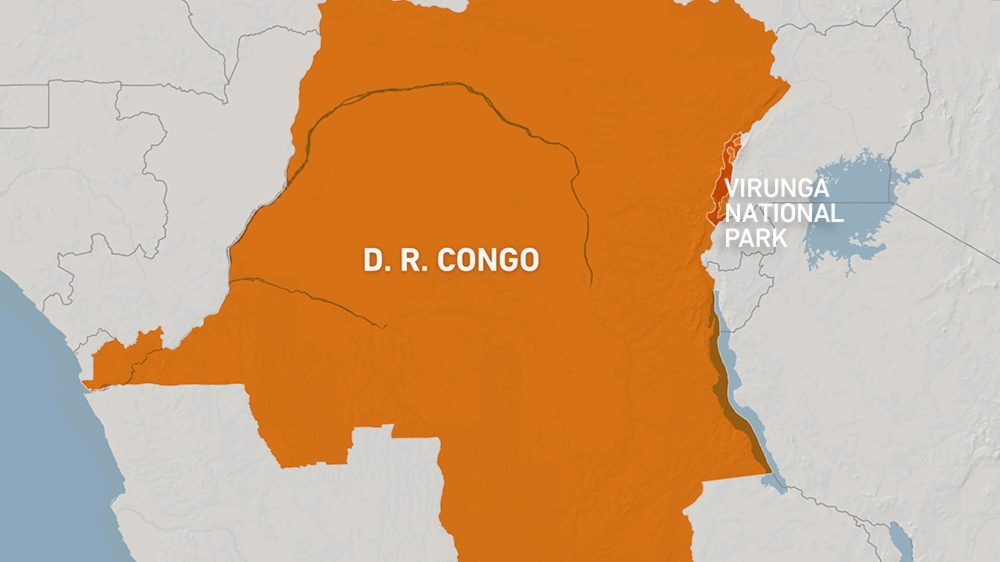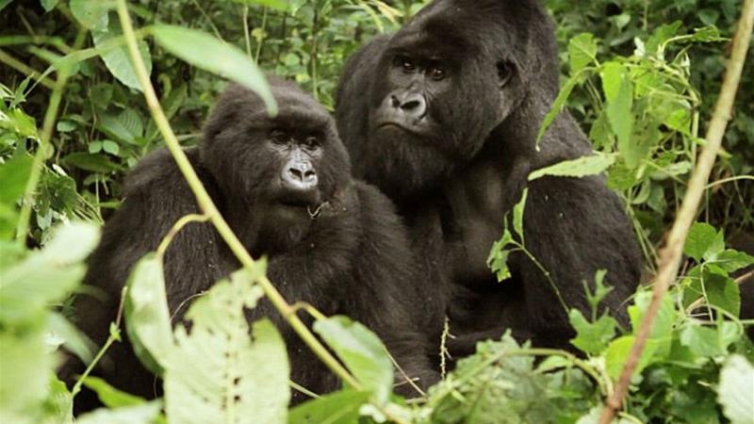Several people, including rangers, have been killed in an attack in Virunga National Park in the eastern Democratic Republic of the Congo (DRC).
In a statement on Friday, park authorities said a major assault by armed groups on Rumangabo village "resulted in substantial loss of life" including rangers, other employees and civilians.
Cosma Wilungula, director of the Congo Institute for Nature Conservation (ICCN), was quoted as saying by Reuters News Agency that 16 people, including 12 rangers, were killed in the attack, with many others seriously wounded.
A security source cited by AFP news agency put the death toll at 13 rangers and five civilians.
"The guards were not the target and died while assisting the civilian vehicle that had been caught under fire from the attackers," the Virunga National Park, a UNESCO World Heritage Site and a popular tourist attraction, said in the statement.

Expressing sadness over the attack, one of the deadliest to hit the park, the statement described it as a "devastating day for Virunga National Park and the surrounding communities".
There was no immediate claim of responsibility, but Wilungula said some 60 fighters from the Democratic Forces for the Liberation of Rwanda (FDLR) ambushed a convoy of civilians that was being protected by the rangers.
Commenting on the wider context of the attack, Phil Clark, of the School of Oriental and African Studies in London, told Al Jazeera: "FDLR is a Hutu-dominated rebel group. The reason it is fighting the Congolese army at the moment is because the Congolese government is in the process of renewing relations with the Rwandan government. And that is a Tutsi-dominated government."
He added: "Rwanda wants Congo to deal with the FDLR, which they see as a Hutu threat across the border - killing Tutsi civilians inside Congo. The FDLR also has a history of going across the border into Rwanda."
Virunga National Park is spread more than 7,800 square kilometres (3,011 square miles) over the borders of the DRC, Rwanda and Uganda. The park is home to a world-famous population of mountain gorillas but has been hit by rising instability and violence.
Inaugurated in 1925, the park has witnessed repeated attacks by rebel groups, militias and poachers.
Visits to the park have been suspended since March 19 for at least 30 days as part of the DRC's efforts to halt the spread of the new coronavirus.
The park banned visitors between May 2018 and the start of last year after two British tourists were kidnapped there. They were later released but a ranger was killed during the abduction.
Latest Stories
-
DAMC, Free Food Company, to distribute 10,000 packs of food to street kids
31 minutes -
Kwame Boafo Akuffo: Court ruling on re-collation flawed
51 minutes -
Samuel Yaw Adusei: The strategist behind NDC’s electoral security in Ashanti region
53 minutes -
I’m confident posterity will judge my performance well – Akufo-Addo
1 hour -
Syria’s minorities seek security as country charts new future
2 hours -
Prof. Nana Aba Appiah Amfo re-appointed as Vice-Chancellor of the University of Ghana
2 hours -
German police probe market attack security and warnings
2 hours -
Grief and anger in Magdeburg after Christmas market attack
2 hours -
Baltasar Coin becomes first Ghanaian meme coin to hit DEX Screener at $100K market cap
3 hours -
EC blames re-collation of disputed results on widespread lawlessness by party supporters
3 hours -
Top 20 Ghanaian songs released in 2024
3 hours -
Beating Messi’s Inter Miami to MLS Cup feels amazing – Joseph Paintsil
4 hours -
NDC administration will reverse all ‘last-minute’ gov’t employee promotions – Asiedu Nketiah
4 hours -
Kudus sights ‘authority and kingship’ for elephant stool celebration
4 hours -
We’ll embrace cutting-edge technologies to address emerging healthcare needs – Prof. Antwi-Kusi
4 hours

